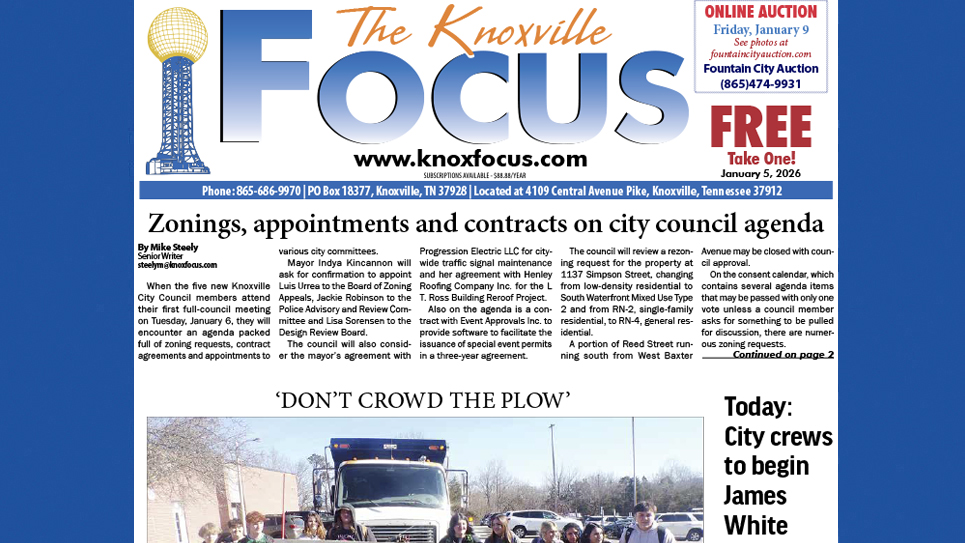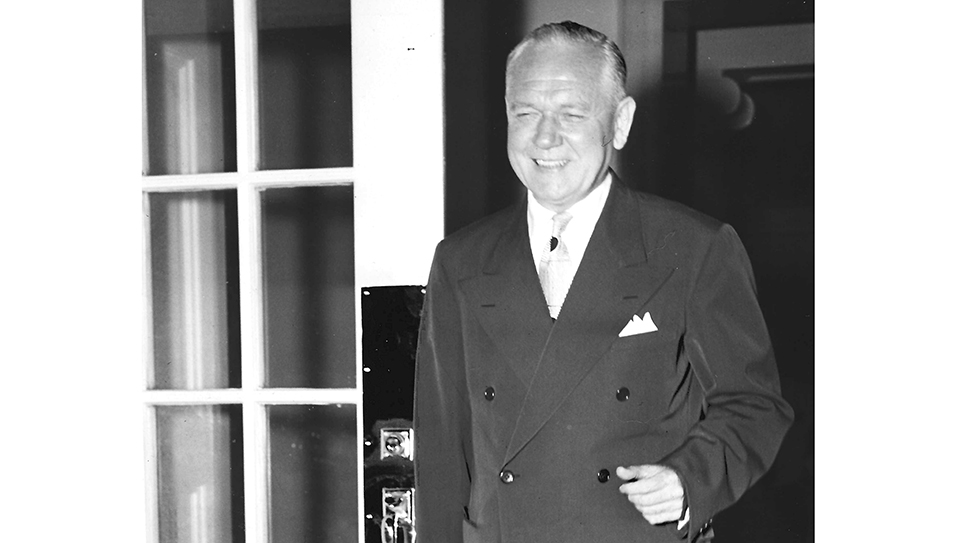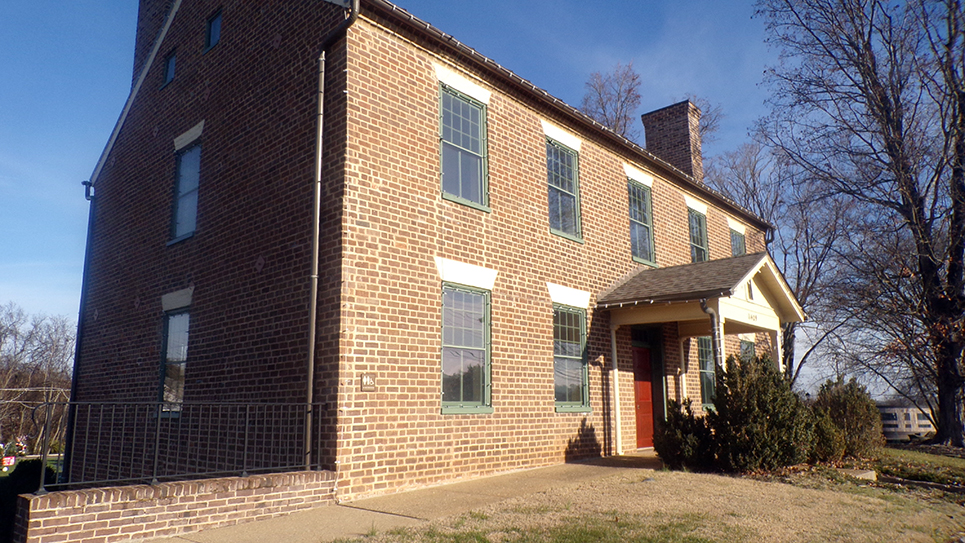The United States was finally catching a glimpse of the end of the bloodiest conflict in human history, World War II, as President Franklin Delano Roosevelt vacationed at his cottage in Warm Springs, Georgia. Roosevelt was sitting for a portrait by artist Elizabeth Shoumatoff, who had been chosen by the president’s former lover, Lucy Mercer, who was also visiting the “Little White House,” albeit unbeknownst to First Lady Eleanor Roosevelt. Surrounded by a coterie of adoring females, including his two cousins Laura Delano and Daisy Suckley, President Roosevelt was dressed in a gray double-breasted suit, white shirt, and his crimson Harvard tie as he sat for Ms. Shoumatoff. Just before lunch was served, the President rubbed his head and complained of a “terrific headache” and then slumped to one side. Daisy Suckley asked if Roosevelt had dropped his cigarette when Lucy Mercer screamed.
The President’s doctor was summoned and while Roosevelt continued to breathe, he never regained consciousness despite an injection of adrenaline to his heart. The women, huddled together in the living room of the Little White House, could hear a dreadful snoring coming from the President’s bedroom. Two hours after collapsing in his chair, Franklin Roosevelt stopped snoring and was pronounced dead. Fala, Roosevelt’s Scottish terrier, who had been given to him by Daisy Suckley, broke through the screen door and ran to the top of a nearby hill and let out an eerie howl the moment FDR died.
Officials at the White House had to be notified of Roosevelt’s passing and Vice President Harry Truman had to be sworn into office as the new President of the United States. The presidential train had to be readied for the long journey back to Washington, D. C., the President’s body had to be prepared by the embalmers, and a coffin ordered for the train ride. The embalmers arrived and found FDR’s arteries had hardened to the point where it was almost impossible to properly embalm the body. Eventually, the embalmers decided to allow Joseph Gawler’s Sons to finish the job in Washington, D. C. Gawler’s Sons had prepared the bodies of other fallen presidents and would do the same for former president Dwight Eisenhower in 1969. Joseph Gawler had been a cabinetmaker, eventually making coffins before becoming a funeral director. Located near the White House, Gawler had been in business since 1850.
First Lady Eleanor Roosevelt had been made aware the President had fainted, but was advised to keep her public schedule. Eleanor was summoned back to the White House while making a public appearance and later recalled that during the ride back she was filled with such a sense of dread, she knew something had happened to the President. Harry Truman was having a drink in Speaker of the House Sam Rayburn’s hideaway office known as “the Board of Education” by those lucky few invited to enjoy a glass of bourbon and branch water after working hours when he received a telephone call from Steve Early, Roosevelt’s press secretary. Truman was told to quietly come to the White House.
Lucy Mercer was near hysteria when Elizabeth Shoumatoff hurried her off to make the drive back to Aiken, South Carolina as Eleanor Roosevelt began the journey to Warm Springs. Roosevelt, who had brought the country through two of the greatest crises faced by the United States – – – the Great Depression and World War II – – – had died as American armies drove back Hitler’s legions and the war in the Pacific was closing in on Japan. Roosevelt had been a dying man even before having been reelected to an unprecedented fourth term in 1944. Still, most of the nation did not realize Franklin Roosevelt was a cripple and could not walk, nor did most Americans know FDR was dying. The President’s death came as a profound shock to most Americans.
As the train carrying Roosevelt’s body back to the Capitol slowly made its way back to Washington, tens of thousands lined the route to silently pay tribute to the fallen president. The reaction in Tennessee was like that of the rest of the country. The Kingsport News lamented “Our Tragic Loss” in an editorial noting, “With the nation and the world standing at a crossroads, with the most delicate decisions to be made, the man who has led the country and to whom we have come to look for leadership is suddenly taken from us.” The commentary by the Kingsport News was typical of what was running through the minds of hundreds of thousands, if not millions of Americans; FDR had been president for so long it was difficult to imagine anyone else leading the country. Few had confidence in Harry Truman to lead the country through the perilous times ahead.
One of the last meetings President Roosevelt had in the White House before leaving for Warm Springs concerned Tennessee, more specifically Tennessee’s senior United States senator, Kenneth D. McKellar. Edward Hull Crump, leader of the Shelby County machine and Tennessee’s member of the Democratic National Committee, was asked to come to the Oval Office and visit with Roosevelt in March of 1945. Roosevelt was already thinking of the post war world; the President was eager to launch the United Nations and was worried about Senator McKellar’s influence inside the Senate. McKellar’s feud with Tennessee Valley Authority Director David Lilienthal concerned Roosevelt. The President had already concluded he would not renominate Lilienthal as Roosevelt did not relish the fight Senator McKellar would wage inside the United States Senate. Roosevelt’s death ironically would preserve David Lilienthal’s public career.
Once Crump was seated across from Roosevelt, the President urged the Memphis Boss to dump McKellar when the senator was up for reelection. The seventy-six old senator showed no signs of slowing down, much less voluntarily retiring from office. What Roosevelt did not know was that Crump did not especially like the President, knowing all too well of Roosevelt’s duplicitous nature. To his credit, Crump refused to consider withdrawing his support from his friend McKellar. The Memphis Boss serenely told President Roosevelt McKellar would surely run for a sixth term in 1946. Roosevelt snapped if McKellar ran again, he would lose. Crump had not the slightest compunction correcting the President in the Oval Office, telling Roosevelt not only would McKellar run again in 1946, but also the senator would be reelected.
Senator McKellar outlived Franklin Roosevelt politically and personally. McKellar was at Washington’s Grand Central Station to welcome President Harry Truman as members of Congress prepared to leave for Hyde Park to attend Roosevelt’s burial. McKellar was inside the small Episcopal church in Hyde Park for the service honoring the late President, as well as the graveside service at Roosevelt’s presidential library. Days after Roosevelt’s death, a story appeared in the Knoxville News-Sentinel about the President wanting to see McKellar upon his return from Warm Springs. Senator McKellar wistfully told the News-Sentinel he continued to wonder just what Roosevelt wanted from him. Doubtless Crump had told McKellar about his last conversation with President Roosevelt, but the senator never acknowledged the fact. While McKellar had loyally supported FDR politically, as well as most of the New Deal, the Tennessee senator had never forgiven Roosevelt for having George W. Norris of Nebraska introduce the legislation creating the Tennessee Valley Authority. Norris would forever be remembered as the “Father of the TVA” while McKellar had to be content with being identified as the “Rich Uncle of the TVA” as it was the Tennessean who had constantly fought the agency’s battles in Congress and provided its funding.
“I talked with the president on March 4,” Senator McKellar recalled, “at which time we had a pleasant discussion on affairs in general. Then, just a few days ago he wrote me saying he wished to see me about something. He said he would see me when he returned from a trip to Hyde Park. A little later his secretary told me he wanted me to see him immediately upon his return. By then he had gone to Warm Springs.”
McKellar told the reporter, “President Roosevelt had the most remarkable and gracious personality of any man I have ever seen. He was firm, but in our long association, I never saw him permit himself to show anger.” Senator McKellar praised the new president, describing Harry Truman as a man “of ability, energy, integrity and large experience.” McKellar tried to reassure Tennesseans, stating, “I believe the country will be safe in his hands.”
Senator McKellar had been on a train, traveling to Knoxville to address the Jefferson Day Dinner when he had received word in Charlottesville, Virginia that President Roosevelt had died. After stopping in Knoxville, McKellar boarded the train and returned to Washington.
McKellar did have the satisfaction of becoming something of a national figure with the death of Franklin D. Roosevelt. Chosen by his colleagues as President Pro Tempore of the Senate, McKellar essentially became acting Vice President of the United States when Harry Truman was elevated to the presidency. McKellar enjoyed the higher salary of the Vice President, as well as the vice-presidential limousine and driver. Truman announced he would invite McKellar to sit in on Cabinet meetings, which only further illustrated the Tennessean’s importance in Washington. The perks and prominence were immediately recognized back home in Tennessee and most Tennesseans were delighted by McKellar’s new station, believing it gave the old senator even more influence in the nation’s Capitol. Several newspapers in Tennessee ran editorials highlighting K. D. McKellar’s new power and prestige, which they believed would benefit the Volunteer State.
Tennessee’s junior United States senator, Tom Stewart, had been on a train as well, accompanied by his wife and headed for Nashville when the news broke that FDR had died. Senator Stewart had intended to leave Nashville with Governor Jim Nance McCord for Milan, Tennessee where they would dedicate a new railway depot. From Union City, Senator Stewart issued a statement indicating, “The President’s death is the most shocking news I’ve ever heard.” Stewart readily admitted, “I cannot imagine a greater loss to the nation.” Tom Stewart thought Roosevelt would “go down in history as one of the greatest, if not the greatest, President in our nation’s history.” Like his senior colleague McKellar, Senator Stewart stressed Harry Truman was “a worthy successor” to the late Roosevelt and “the country will be perfectly safe in his hands.” Stewart had earlier tried to assure Governor McCord that President Roosevelt was healthy. The governor had been worried about Roosevelt’s appearance while Stewart insisted FDR was in good health.
Former governor Hill McAlister, who had been Tennessee’s chief executive during the Great Depression and had been elected in 1932 along with Franklin Roosevelt, acknowledged the loss the country had suffered and thought Roosevelt’s passing had come at “a critical time” in America’s history and added, “Even his enemies must miss him in this hour.” From Shelbyville, came a statement from former governor Prentice Cooper, who said he was “deeply shocked and grieved” by President Roosevelt’s death. As World War II inched toward its end, Cooper thought the “nation needed him as never before.”
Jim McCord, Tennessee’s incumbent governor, gave out his own statement, “Tennessee, like the rest of the nation and the whole world, bows its head in grief” with the death of Franklin Roosevelt. McCord said Roosevelt’s passing would not change the outcome of the war, as victory was already at hand in Europe and “soon will be won in the Orient”, but thought FDR’s death might well “have serious repercussions on winning the peace.” While “Roosevelt the President is dead,” McCord believed, “Roosevelt, the great humanitarian will always live in the heart of America.”
One anonymous tank corpsman summed up the passing of Franklin Roosevelt by saying, “It’s just plain hell. I was in the Second Armored Division (which was known as “Hell on Wheels”) and don’t let anybody kid you, the average G. I. was strictly behind the President.”
His strong profile stills adorns the dime and Franklin D. Roosevelt remains among our greatest presidents.







